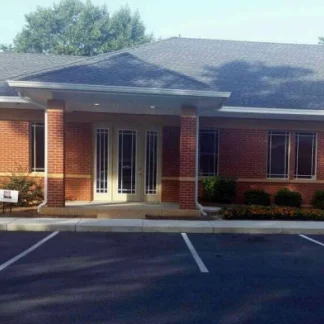Redirect Counseling Services
Redirect Counseling Services is an outpatient rehab located in Valdosta, GA. Red...
Pathway to Hope Counseling Services is a private rehab located in Valdosta, Georgia. Pathway to Hope Counseling Services specializes in the treatment of alcoholism, drug addiction, mental health and substance abuse, and opioid addiction.
Contact us for more information: (229) 249-7730

Connect with Pathway to Hope Counseling Services by calling their admissions team directly.
(229) 249-7730 Website Get DirectionsResearch clearly demonstrates that recovery is far more successful and sustainable when loved ones like family members participate in rehab and substance abuse treatment. Genetic factors may be at play when it comes to drug and alcohol addiction, as well as mental health issues. Family dynamics often play a critical role in addiction triggers, and if properly educated, family members can be a strong source of support when it comes to rehabilitation.
Group therapy is any therapeutic work that happens in a group (not one-on-one). There are a number of different group therapy modalities, including support groups, experiential therapy, psycho-education, and more. Group therapy involves treatment as well as processing interaction between group members.
In individual therapy, a patient meets one-on-one with a trained psychologist or counselor. Therapy is a pivotal part of effective substance abuse treatment, as it often covers root causes of addiction, including challenges faced by the patient in their social, family, and work/school life.
Group therapy is any therapeutic work that happens in a group (not one-on-one). There are a number of different group therapy modalities, including support groups, experiential therapy, psycho-education, and more. Group therapy involves treatment as well as processing interaction between group members.
In individual therapy, a patient meets one-on-one with a trained psychologist or counselor. Therapy is a pivotal part of effective substance abuse treatment, as it often covers root causes of addiction, including challenges faced by the patient in their social, family, and work/school life.
In individual therapy, a patient meets one-on-one with a trained psychologist or counselor. Therapy is a pivotal part of effective substance abuse treatment, as it often covers root causes of addiction, including challenges faced by the patient in their social, family, and work/school life.
Redirect Counseling Services is an outpatient rehab located in Valdosta, GA. Red...
Greenleaf Behavioral Health Hospital, located in Valdosta, Georgia, offers a con...
Peace Way Counseling is a private rehab located in Valdosta, Georgia. Peace Way ...
Lowndes County Substance Abuse Services is a private rehab located in Valdosta, ...